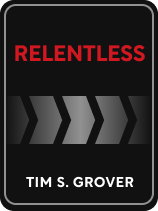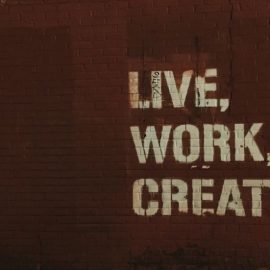

This article is an excerpt from the Shortform book guide to "Relentless" by Tim Grover. Shortform has the world's best summaries and analyses of books you should be reading.
Like this article? Sign up for a free trial here .
Are you receiving judgment on your journey to success and fulfillment? Do you wish to know how to deal with judgmental people so there’s no negativity in your life?
If you’re trying to improve your life and focus on yourself, there are going to be people along the way who will call you selfish and conceited. Acknowledging these judgments can damage your confidence and disrupt your journey.
Here’s how to deal with judgmental people, and the two judgments you’ll most likely hear from those who are trying to tear you down.
Ignore Judgmental People
When you’re working towards being the best version of yourself, one kind of discomfort you might experience at some point is judgment from other people. In Relentless, Tim Grover recommends learning how to deal with judgmental people because acknowledging them creates self-doubt, which prevents relentlessness. He says the one way to do that is to ignore them.
(Shortform note: While Grover recommends you ignore judgments, psychological research suggests that even indirect judgments you might not consciously notice still have a significant negative impact on performance. Studies of “stereotype threat” show that members of groups associated with negative stereotypes face increased performance anxiety, even when others only passively mention those stereotypes. This increased anxiety often leads to worse performance. Research on stereotype threat suggests that Grover’s advice to ignore judgments might not prevent them from negatively impacting your performance.)
Grover explores two comments you might deal with from judgmental people when pursuing relentlessness and explains how acknowledging them holds you back.
Judgment #1: “You’re Arrogant”
Grover explains that the intense confidence needed for avoiding fear and self-doubt will often come off as arrogance to others. Acknowledging or believing this judgment will damage this confidence, though, and will make it easier for you to feel fear or self-doubt and freeze up under pressure.
Furthermore, you shouldn’t acknowledge this judgment because it’s not true. Grover explains that there’s an important difference between relentless confidence and arrogance: the ability to acknowledge errors and mistakes. Because an unstoppable person always seeks improvement, they admit when they’re wrong and work to make sure it doesn’t happen again. On the other hand, an arrogant person doesn’t acknowledge their mistakes and blames others or makes excuses instead of working to improve.
(Shortform note: Psychologists expand on Grover’s distinction between arrogance and confidence further by arguing that confidence and arrogance are mutually exclusive. This is because arrogance is actually a person’s attempt to overcome a lack of confidence by comparing themselves favorably to others. Following this argument, the Unstoppable can’t be arrogant because one of their defining characteristics is confidence in themselves.)
Judgment #2: “You’re a Bad Person”
The sacrifices you must make to be unstoppable, as well as the indulgent ways you might unwind or release pressure, might lead others to make the judgment that you’re a bad person. This statement made by a judgmental person claims that you value success too high, which makes you do morally questionable things.
Acknowledging this judgmental person means questioning your goals and everything you’ve put towards them, and will shatter your confidence. Grover insists that you need to ignore this judgment and that you should never apologize for the things you have to do to succeed or that make you who you are. If you do, you’ll feel self-doubt and won’t be able to relentlessly pursue success.
(Shortform note: Many critics have ethical concerns with this advice, saying that Grover argues against self-reflection and repentance for bad behavior in favor of succeeding at a task. Critics claim this seems like Grover values success more than he values living ethically. That being said, there is room for interpretation in whether Grover is telling people how they should live, or if he’s just writing about how the unstoppable people act. If you interpret Relentless as the latter, then Grover is just making observations instead of arguments.)

———End of Preview———
Like what you just read? Read the rest of the world's best book summary and analysis of Tim Grover's "Relentless" at Shortform .
Here's what you'll find in our full Relentless summary :
- The qualities you’ll need to become the best in your field
- Why sacrifices and discomfort are necessary for growth
- Why you should practice indulging in your primal self






